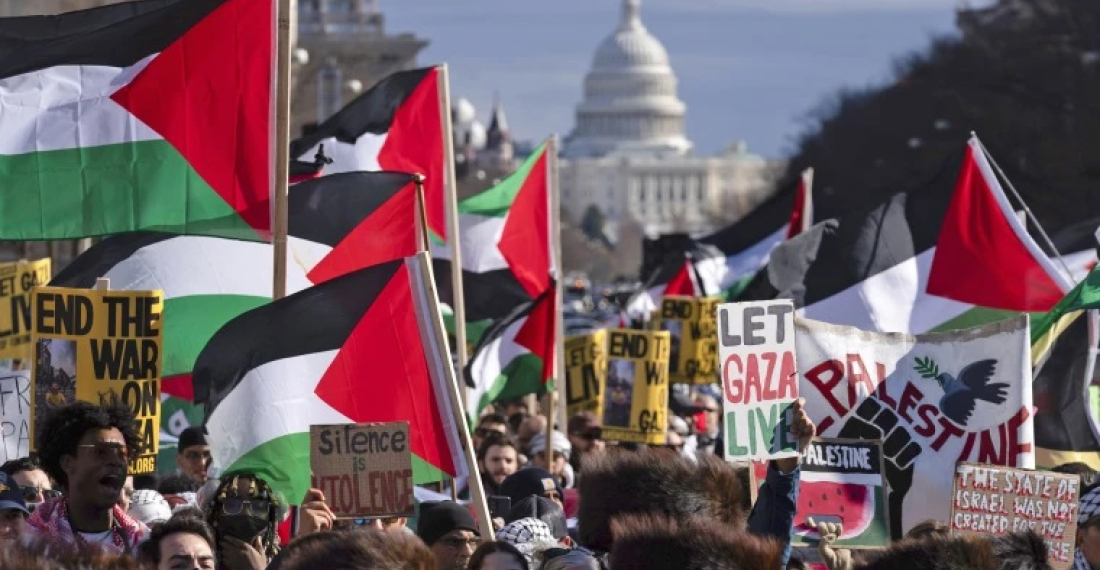The world on Sunday marked the 100th day of the war in Gaza. Thousands took to the streets across the world, many supporting one side or the other in the conflict.
For the Palestinian people in Gaza the anniversary is simply another opportunity to count the dead and injured, not to speak of other untold suffering that they have to endure. And there seems to be no end in sight.
Also Sunday, Israeli warplanes struck targets in Lebanon following a Hezbollah missile attack that killed two Israeli civilians — an older woman and her adult son — in northern Israel. The exchange of fire underscored concerns that the Gaza violence could trigger wider fighting across the region. The war in Gaza, launched by Israel in response to the unprecedented 7 October attack by the Palestinian group Hamas on Israeli territory, has killed nearly 24,000 Palestinians, devastated vast swaths of Gaza, driven around 85 percent of the territory’s 2.3 million residents from their homes and pushed a quarter of the population into starvation.
In a sign of widening rift in the positions of Israel and the US, White House National Security Council spokesman John Kirby speaking to the CBS TV channel on Sunday (14 January) said the US has been speaking to Israel “about a transition to low-intensity operations” in Gaza.“We believe it’s the right time for that transition. And we’re talking to them about doing that".
Israel launched the war after the Hamas attack killed some 1,200 people, mostly civilians, and took 250 others hostage. Prime Minister Benjamin Netanyahu has vowed to press ahead until Hamas is destroyed and all of the more than 100 hostages still in captivity are freed. The war has sent tensions soaring across the region, with Israel trading fire almost daily with Lebanon’s Hezbollah militant group and Iranian-backed militias attacking US targets in Syria and Iraq. In addition, Yemen’s Houthi rebels have been targeting international shipping, drawing a wave of US airstrikes last week.
Hezbollah’s leader, Hassan Nasrallah, said his group won’t stop until a ceasefire is in place for Gaza.
“We are continuing, and our front is inflicting losses on the enemy and putting pressure on displaced people,” Nasrallah said in a speech, referring to the tens of thousands of Israelis who have fled northern border areas.






